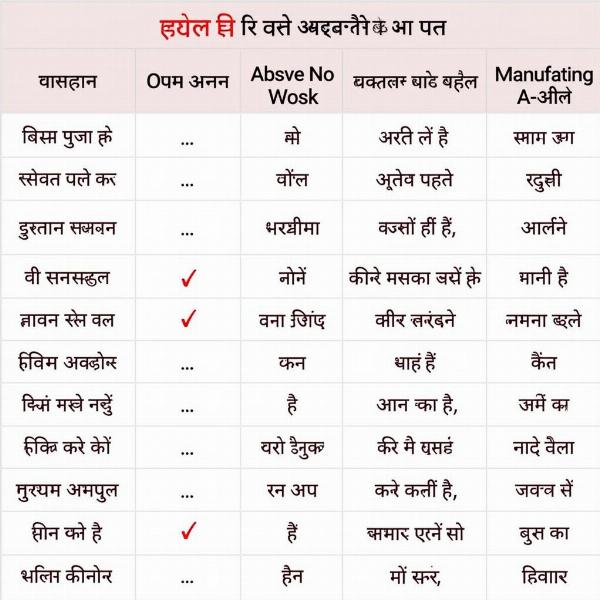The phrase “bloody primitive” is often encountered in English media, and understanding its meaning, especially within the Indian context, requires careful consideration. While seemingly straightforward, its connotations can be complex and even offensive, depending on usage and cultural context. This article explores the meaning of “bloody primitive” in Hindi, its various interpretations, and the importance of cultural sensitivity when using such phrases.
Deconstructing “Bloody Primitive”
“Bloody” acts as an intensifier, similar to “very” or “extremely,” but with a more informal and often negative connotation. It’s important to note that “bloody” can be considered vulgar in some contexts. “Primitive,” on the other hand, refers to something ancient, basic, or undeveloped. When combined, “bloody primitive” describes something considered extremely outdated, rudimentary, or unsophisticated.
“Bloody Primitive” Meaning in Hindi: Exploring Equivalents
Directly translating “bloody primitive” into Hindi can be challenging, as the nuances of the English phrase don’t always have a single, perfect equivalent. Several options capture different aspects of the meaning:
- बहुत ही पुराना (bahut hi purana): This translates to “very old” and emphasizes the outdated aspect.
- बिल्कुल आदिम (bilkul adim): Meaning “absolutely primitive,” this focuses on the undeveloped nature.
- घोर पिछड़ा (ghor pichda): This translates to “extremely backward” and carries a stronger negative connotation, suggesting a lack of progress.
- बेहद पुरातनपंथी (behad puratanpanthi): This means “extremely orthodox” and highlights adherence to outdated practices.
Choosing the most appropriate Hindi equivalent depends heavily on the specific context.
 Different Hindi translations for "bloody primitive"
Different Hindi translations for "bloody primitive"
Cultural Sensitivity and Usage Considerations
Using “bloody primitive” requires careful consideration, particularly in cross-cultural communication. The term can be perceived as dismissive or even offensive, especially when applied to cultural practices or beliefs. It’s crucial to be mindful of the potential for misinterpretation and to choose language that is respectful and culturally sensitive.
What does someone mean when they say “bloody primitive”?
When someone uses “bloody primitive,” they are often expressing frustration or disapproval towards something perceived as inefficient, outdated, or unsophisticated. The “bloody” adds emphasis to their negative sentiment. It’s important to consider the speaker’s tone and context to fully understand their intent.
Is it offensive to use “bloody primitive”?
Yes, the phrase can be offensive, especially when directed towards people or their cultural practices. The term “primitive” carries colonial baggage and can be interpreted as condescending. The addition of “bloody” further intensifies the negativity.
Conclusion: Navigating the Nuances of “Bloody Primitive”
Understanding the meaning and implications of “bloody primitive” is essential for effective communication, especially in a diverse context like India. While the phrase might seem simple, its connotations can be complex and potentially offensive. By exploring the various Hindi equivalents and considering cultural sensitivities, we can ensure our language is respectful and avoids unintended misinterpretations. Remember that clear and sensitive communication fosters understanding and builds stronger relationships.
FAQ:
- Is “bloody primitive” commonly used in formal settings? No, it’s considered informal and potentially offensive, and should be avoided in professional or formal communication.
- What are some alternative phrases to “bloody primitive”? Alternatives include “outdated,” “antiquated,” “rudimentary,” or “unsophisticated,” depending on the specific context.
- How can I ensure I’m not being offensive when describing something as “primitive”? Focus on the specific aspects that are outdated or inefficient, rather than making generalizations about entire cultures or practices.
- Are there any positive connotations of “primitive”? In some contexts, “primitive” can refer to something simple, natural, or unspoiled, but it’s important to be mindful of the potential for negative interpretations.
- What is the best way to translate “bloody primitive” into another language? Consider the nuances of the phrase and the specific context before choosing a translation. Consulting with a native speaker can be helpful.
- Can “bloody primitive” be used humorously? While possible, it’s important to be cautious and ensure the humor doesn’t come across as offensive or disrespectful.
- Why is understanding the cultural context important when using phrases like “bloody primitive”? Words and phrases carry different meanings and connotations across cultures. Being sensitive to these differences avoids misunderstandings and promotes respectful communication.
Meaning-Hindi.in: Your Partner for Accurate and Culturally Sensitive Translations
Meaning-Hindi.in is your trusted source for high-quality Hindi translation services. We specialize in a wide range of translation services, including business and commercial documents, legal and certified translations, technical manuals, website localization, educational and academic materials, and expedited translation services. Our team of expert linguists ensures accurate and culturally appropriate translations for all your needs. We understand the nuances of both Hindi and English, ensuring your message is conveyed effectively and respectfully. Whether you need to translate “bloody primitive” or any other phrase, Meaning-Hindi.in is committed to providing precise and culturally sensitive language solutions. Contact us today for a free quote at [email protected] or call us at +91 11-4502-7584. Meaning-Hindi.in – bridging the language gap with accuracy and cultural understanding.